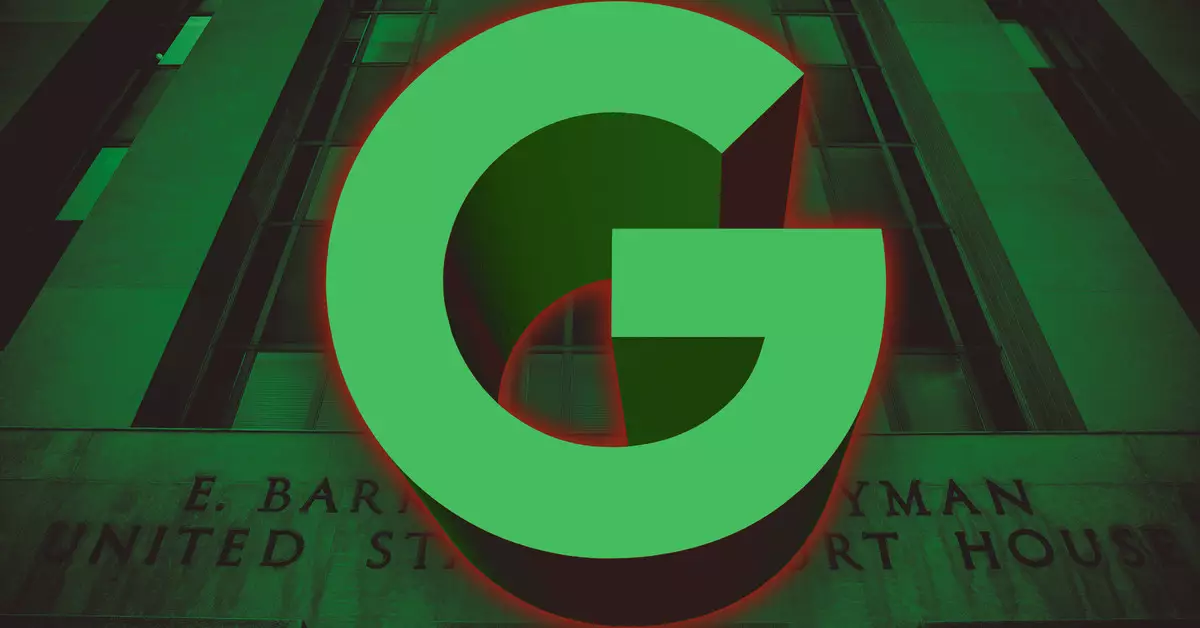In a landscape marked by increasing scrutiny on monopolistic practices, Google finds itself under the microscope of the Department of Justice (DOJ). The DOJ’s initiative to tackle what it terms “illegal antitrust behavior” has resulted in a proposal that demands significant changes to how Google operates, particularly in relation to its search engine market dominance. At the heart of the matter is the DOJ’s suggestion that Google divest some of its properties, specifically Chrome, to foster a more competitive environment. However, Google’s response offers a different angle, emphasizing alternative remedies focused on contractual arrangements rather than structural changes.
The approach taken by Google in response to the DOJ’s allegations is both strategic and revealing. Rather than agreeing to divest high-profile assets like Chrome or Android, Google proposes changes that revolve around its financial dealings. Their fix doesn’t take the more aggressive route suggested by the DOJ — such as sharing valuable search data with competitors — but instead targets the payments made for exclusive service placements. These arrangements, often shrouded in indirect insignificance, point towards a desire to maintain influence without relinquishing core assets.
According to Google’s regulatory VP Lee-Anne Mulholland, the company’s plan aims to remodel its contracts related to search distribution. The proposed solution includes a prohibition on tying Google’s various services such as Chrome and Google Play with search distribution contracts. This suggests an awareness of how tightly knitted Google’s offerings are, and the leverage that comes from such integrations.
While Google’s proposed remedies indicate a willingness to engage with the DOJ’s findings, they may fall short of conveying a genuine commitment to fostering competition. By focusing on financial deals and licensing agreements, the proposals potentially sidestep a deeper vulnerability in the search engine market — the lack of competitive parity facilitated by Google’s extensive data resources. Critics could argue that these fixes do little more than maintain the status quo while failing to genuinely level the playing field for lesser-known competitors striving for market share.
Moreover, Google’s intention to appeal Judge Amit Mehta’s stark ruling categorizes the company as a monopolist raises additional questions about accountability. The very need to appeal may illustrate resistance to changing practices that are considered coercive by many in the tech community. The upcoming two-week trial following the revised proposal submission emphasizes a crucial juncture that could either reinforce Google’s existing framework or propel significant changes in the industry.
Looking Ahead: The Future of Tech Regulation
As we navigate through this landscape of regulatory challenges, the implications extend beyond Google’s proposed changes. The case epitomizes a broader conversation on technological governance, with potential ramifications for large tech entities and their strategies. The ongoing discourse surrounding Google’s practices forms part of a critical examination of the power dynamics in the digital age, where consumer choices, data rights, and competitive fairness are ever-evolving battlegrounds.
While Google’s recent proposals may attempt to deflect potential repercussions from the DOJ, they evoke multiple layers of scrutiny regarding the company’s overarching influence on the market. The future of how technology giants operate amid regulation remains uncertain, but it assuredly underscores the necessity for significant dialogue around fair competition in the tech industry.


Leave a Reply